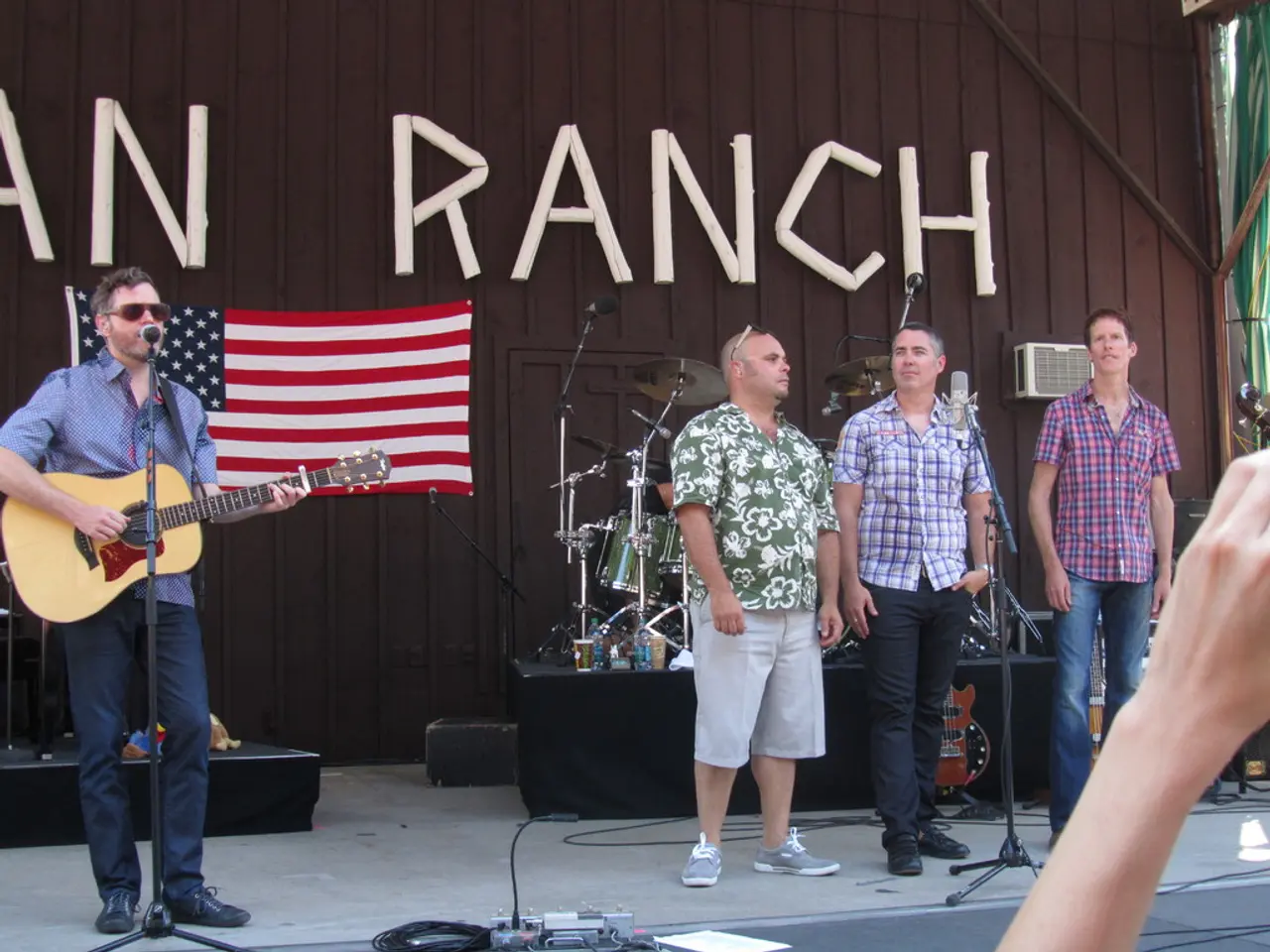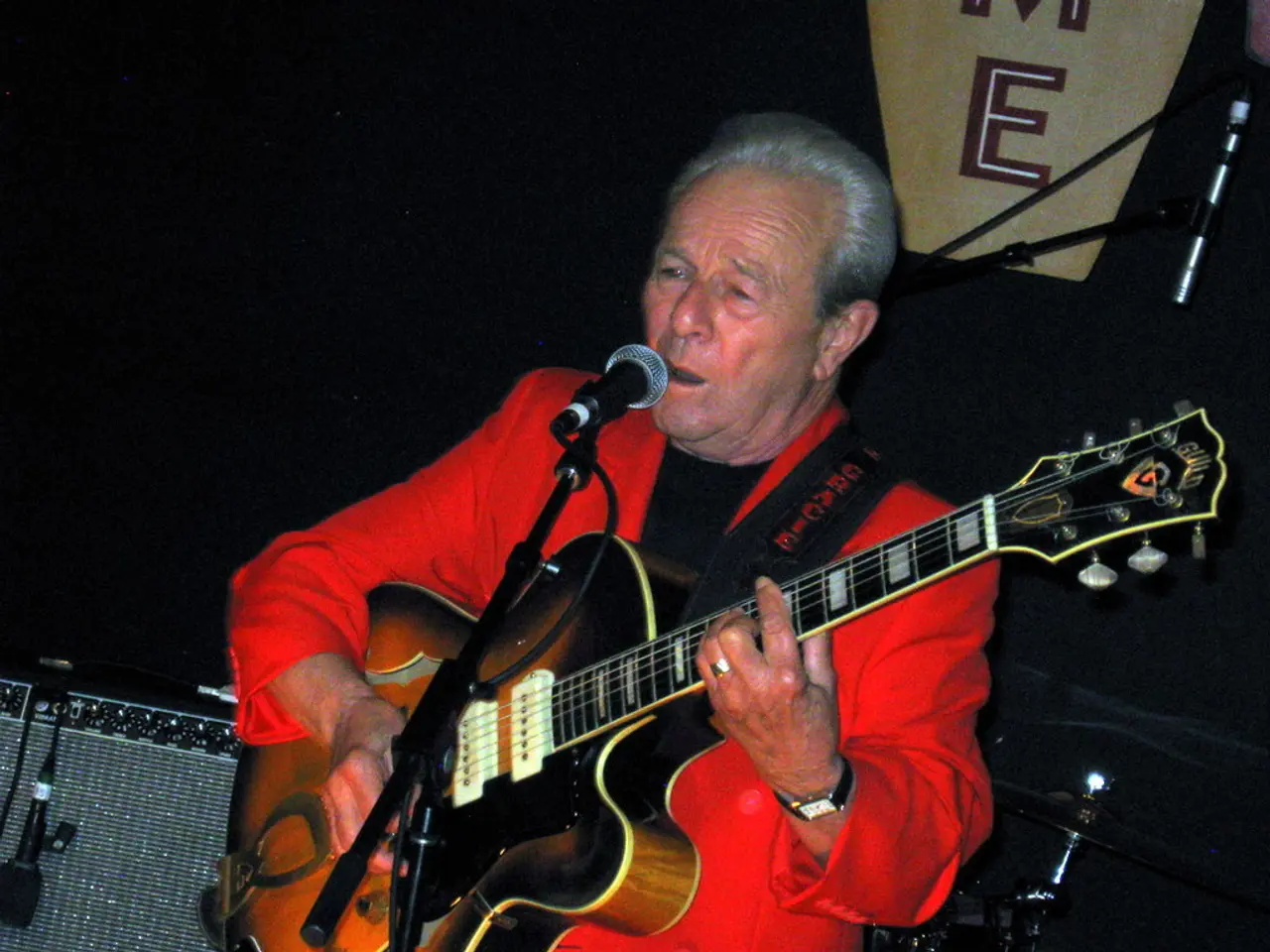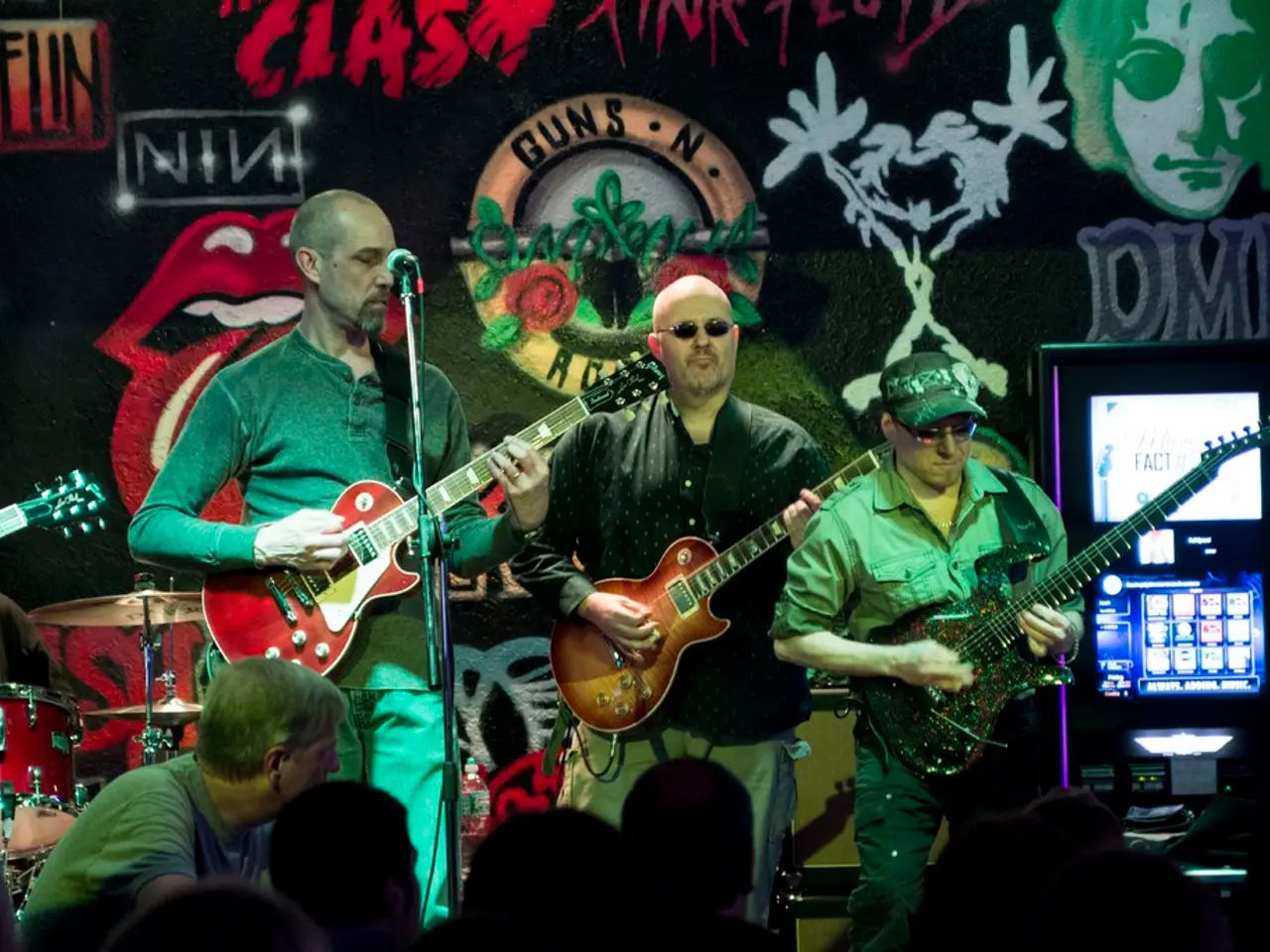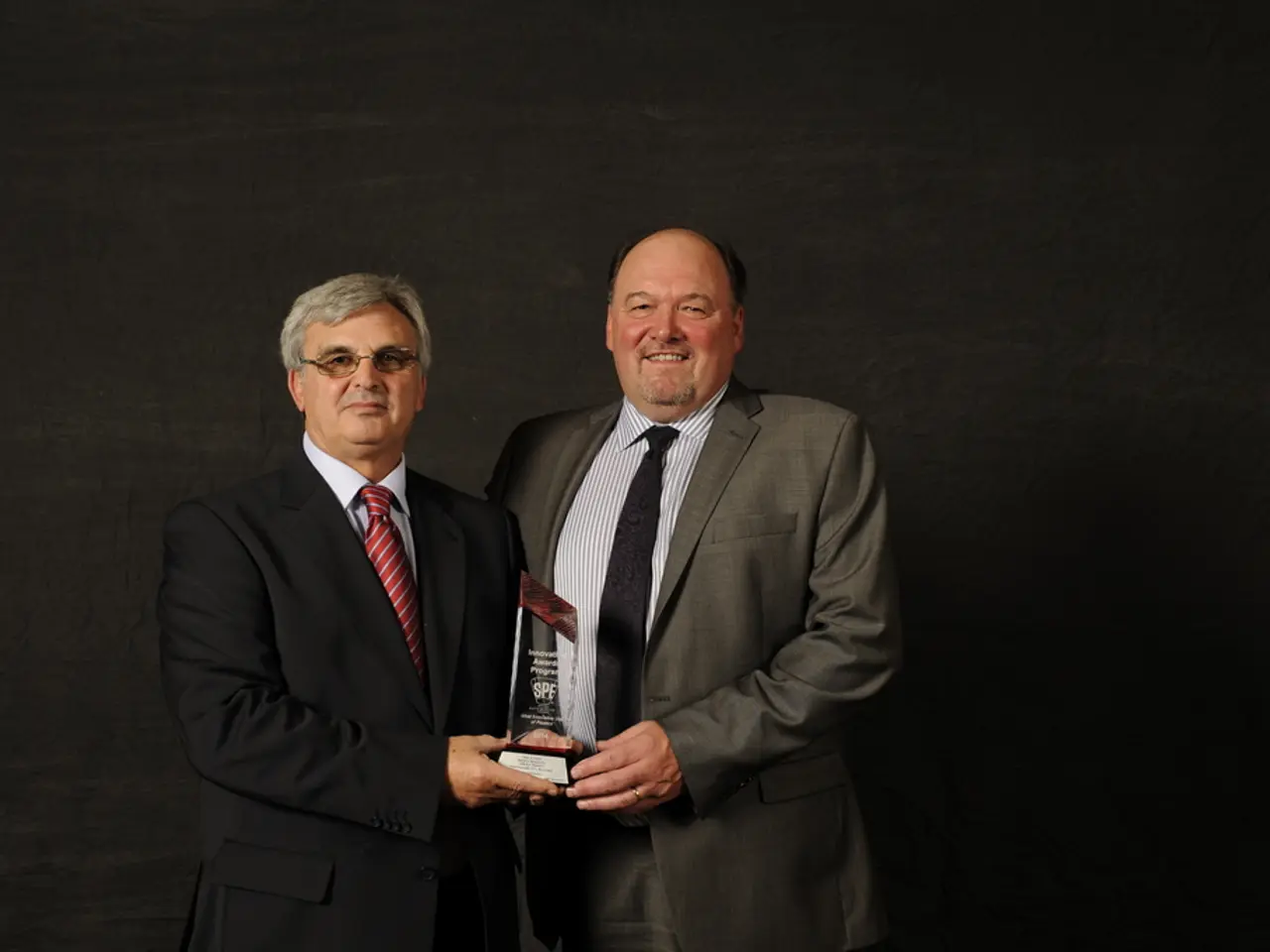Amidst uncertainty, Bob Dylan stirred up a commotion as his audience booed, with the noise echoing throughout the venue: The controversial birth of one of Dylan's finest compositions.
Bob Dylan's Electric Revolution: The Impact of Highway 61 Revisited
Bob Dylan's musical journey in 1965 was marked by a significant shift from traditional folk to folk-rock, a transformation that was influenced by the evolving music scene and the Beatles' own move towards folk-rock sounds.
During a visit in February 1964, Dylan was captivated by the soaring, jangling tones of The Beatles. This encounter laid the groundwork for his own electrification, which would come to fruition later that year.
In July 1965, Dylan released one of his most celebrated and influential songs, "Like A Rolling Stone". The recording of this defining statement took place on 15 and 16 June, just a few days after his controversial performance at the Newport Folk Festival.
At Newport, Dylan walked out on stage dressed in black jeans, boots, and a leather jacket, clutching a 1965 Fender Stratocaster. His band for the performance included members from the Paul Butterfield Blues Band, such as Al Kooper on organ/bass, Barry Goldberg on piano/organ, Mike Bloomfield on guitar, Jerome Arnold on bass, Sam Lay on drums.
The live debut of "Like A Rolling Stone" was at the Newport Folk Festival five days later. A young guitarist, Al Kooper, who was invited to watch the session, slipped relatively unnoticed into the live room and played a spontaneous organ riff that became a crucial element of the song.
Highway 61 Revisited, released on 30 August 1965, was Dylan's first album on which he performed using his full electric band on every track. The album climbed to No.4 in the UK and No.3 in the US, solidifying Dylan's position as a trailblazer in the folk-rock genre.
The album is a seminal folk-rock classic, unveiling a musical vision that is harrowing, hilarious, and epic. Across songs like "Ballad of a Thin Man", "Tombstone Blues", and "Just Like Tom Thumb's Blues", Dylan showcased his electrified sound, marking a key departure from pure acoustic folk and signaling his embrace of rock instrumentation.
Dylan's fifth studio album, Bringing It All Back Home, was created in two distinct halves, the first side being electric and the second side being acoustic. This album, along with Highway 61 Revisited and another electric album, Blonde on Blonde, form a trilogy of Dylan's mid-'60s electric albums and are considered masterpieces.
1965 was the year Dylan went electric, with controversial results. He unleashed an explosive imagination on songs such as "Maggie's Farm" and "Subterranean Homesick Blues". Unlike most session players of the time, these musicians had grit, groove, and attitude, contributing to the raw, electric sound that characterised Dylan's new direction.
"Like A Rolling Stone" reached No.2 in the US Billboard Hot 100, underscoring how Dylan's style was integrating into the rock idiom influenced by bands such as The Beatles. This interaction between artists was a catalyst for Dylan’s electrification and the broader emergence of folk-rock.
[1] Sullivan, M. (2015). The Beatles & Bob Dylan: A Very Unusual Friendship. Omnibus Press. [2] Gelb, J. (2016). The Beatles: All Things Must Pass. Little, Brown Spark.
The electrification of Bob Dylan's music, seen in various tracks like "Like A Rolling Stone", was a result of his admiration for The Beatles' folk-rock sounds, as he experienced during his visit in February 1964. This integration of rock music into Dylan's repertoire was a crucial development in 1965, contributing to the emergence of the folk-rock genre.
The album Highway 61 Revisited, released in 1965, showcased Dylan's full electrified band and marked a departure from pure acoustic folk, with songs like "Ballad of a Thin Man" and "Tombstone Blues" combining harrowing, hilarious, and epic elements of music. This electric vision and embrace of rock instrumentation were significant influences from Dylan, resonating with the evolving music scene, much like The Beatles had done earlier.





